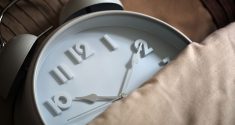Young people who sleep longer—and go to bed earlier—than their peers tend to have better brain function and perform better on cognitive tests. This is what researchers from the UK and China have found. However, the study of young people in the US also showed that even those with better sleep habits did not get the recommended amount of sleep for their age group.
How Sleep Habits in Adolescence Affect Brain Function
Sleep plays an important role in how our bodies function. It is believed that during sleep, toxins that have accumulated in our brains are eliminated and connections in the brain are strengthened and cleared, improving memory, learning ability, and problem-solving skills. Sleep has also been shown to strengthen our immune system and improve our mental health. During puberty, our sleeping habits change. We tend to go to bed later and sleep less, which affects our internal clock. All of this coincides with a period of rapid development in our brain function and cognitive abilities. The American Academy of Sleep Medicine states that the ideal amount of sleep during this time is between eight and ten hours.
Professor Barbara Sahakian from the Department of Psychiatry at the University of Cambridge said: “Regular good sleep is important for us to function properly. We know a lot about sleep in adulthood and old age, but surprisingly little about sleep in adolescence, even though this is a crucial phase in our development. For example, how long do young people sleep and how does this affect their brain function and cognitive performance?”

Long Sleepers Had the Largest Brain Volume and the Best Brain Function
The team found that the adolescents could be roughly divided into three groups: Group 1, which made up about 39% of the participants, slept an average (mean) of 7 hours and 10 minutes. These participants tended to go to bed the latest and fall asleep the earliest. Group 2, which made up 24% of the participants, slept an average of 7 hours and 21 minutes. They had average scores on all sleep characteristics. Group 3, which made up 37% of the participants, slept an average of 7 hours and 25 minutes. These participants tended to go to bed the earliest and fall asleep the fastest, and had lower heart rates during sleep.
Although the researchers found no significant differences in academic performance between the groups, group 3 performed better than group 2 in cognitive tests that examined aspects such as vocabulary, reading, problem solving, and concentration, which in turn performed better than group 1. Group 3 also had the largest brain volume and the best brain function, while group 1 had the smallest volume and the poorest brain function. Professor Sahakian said: “Although the differences in sleep duration between the groups were relatively small, with just over a quarter of an hour between the best and worst sleepers, we were still able to identify differences in brain structure and activity, as well as in task performance. This highlights the importance of good sleep during this important stage of life.”
A Lower Heart Rate
Lead author Dr. Qing Ma from Fudan University said: “Although our study cannot provide a definitive answer as to whether young people have better brain function and achieve better test results because they sleep better, there are a number of studies that support this assumption. For example, research has shown that sleep has a positive effect on memory, especially memory consolidation, which is important for learning.”
The researchers also examined the participants’ heart rates and found that group 3 had the lowest heart rate in all sleep stages and group 1 had the highest heart rate. A lower heart rate is generally a sign of better health, while a higher heart rate is often associated with poor sleep quality, such as restless sleep, frequent waking, and excessive daytime sleepiness. Since the ABCD study is a longitudinal study, i.e., a study that follows its participants over a longer period of time, the team was able to show that the differences in sleep patterns, brain structure and function, and cognitive performance tended to be present two years before and two years after the snapshot examined.






